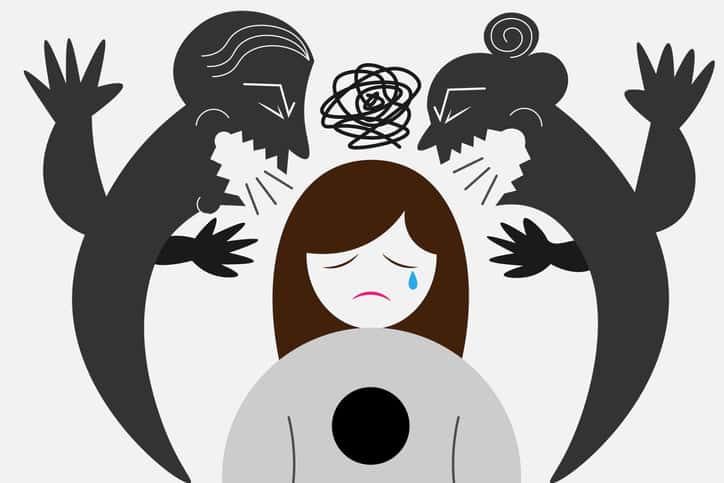Child abuse isn’t always obvious, with bruises or broken bones. Sometimes, it is petty criticisms that tear down a child’s self-esteem, constant screaming instead of conversations that cause a PTSD-like reaction, or straight psychological warfare.
Unfortunately, many parents don’t realize what they are doing to their child until the damage is done if they ever realize it at all. Even scarier – their children usually don’t realize it either. That’s when emotional child abuse becomes generational – when parents show the same anger and aggression to their own children that they experienced from their parents.
This doesn’t mean these families are void of love. It means they have yet to heal. It means that haven’t been taught what the adult/child relationship really should look like. It means that they might not have the support to handle the struggles that life is throwing at them and are unintentionally taking it out on their child. It means that, for whatever reason, they do not have the emotional intelligence to handle their emotions.
At Alzein Pediatrics, we’re here to help adults recognize the symptoms of emotional abuse and ways to get help.
While it may not be the parent’s fault that they are the aggressor, it is their responsibility to get the help needed to correct their behavior to prevent or halt the harm to their children.
How to Identify Emotional Abuse in Children
Emotional abuse is more difficult to identify than physical abuse, but it’s not impossible. First, tune into a child’s demeanor and assess their mental and emotional health. One of the first signs that a child is experiencing emotional abuse is withdrawing from social situations, especially ones that they previously enjoyed, like soccer practice, going to the park, or visiting a family member.
Accompanying signs of withdrawal from what used to be enjoyable activities can be bouts of depression that may present as self-deprecation. Repeating phrases like “I’m not good enough” or “I’m a bad kid” are sure-fire signs that they’ve heard words like this before, from someone close to them.
Emotional abuse may not leave physical scars, but it does significant damage to children, with effects that are likely to impact their adult years. Children who have a delay in emotional development or lose previously acquired developmental skills, such as speech and emotional intelligence, may have been experiencing emotional abuse from a trusted adult.
Another way to identify emotional abuse is to watch the behavior of adults during their interactions with children. Aggressive adults who are putting children through emotional distress may:
- Blame the child for problems
- Consistently belittle the child, describing them with negative terms
- Demand an inappropriate level of physical or academic performance
The First Step to Stopping Child Abuse
Abuse does not stop overnight. The first step to stopping abuse is identifying it. It’s likely the adult in question does not realize that they are emotionally abusing the child, which indicates that they themselves have been abused and need to heal. Regardless of how far back the cycle of abuse goes, the adult will need support to relearn healthier and safer behaviors.
If you are a teacher or parent who suspects a child is being abused in any way, you can start with a trusted pediatrician, or the child’s school social worker or nurse. They will be the best resource to help navigate the best steps, who to involve, and how to get appropriate resources for the child to begin healing as quickly as possible.
Get Help and Prevent Child Abuse
The abuse continues when adults adopt “none of my business” as their motto. The physical and mental well-being of children who cannot protect themselves is all of our business. If you believe something is wrong, trust your instincts and alert someone in the proper channels. You can make a real difference, not just for one child, but for our society as a whole.
Other resources to utilize to get help for a child experiencing emotional abuse:
- Childhelp National Child Abuse Hotline: 1-800-4-A-CHILD (1-800-422-4453)
- Prevent Child Abuse America: 1-800-CHILDREN (1-800-244-5373)
- If a child needs immediate medical attention, is experiencing self-harm, or is a suicide risk, call 9-1-1
If you have questions about emotional or physical child abuse, the providers at Alzein Pediatrics offer a confidential safe space. Please call us at 708-424-7600 or click here to make an appointment or visit Our Evergreen Park, Oak Lawn/95th Street, and Urgent Care locations.


